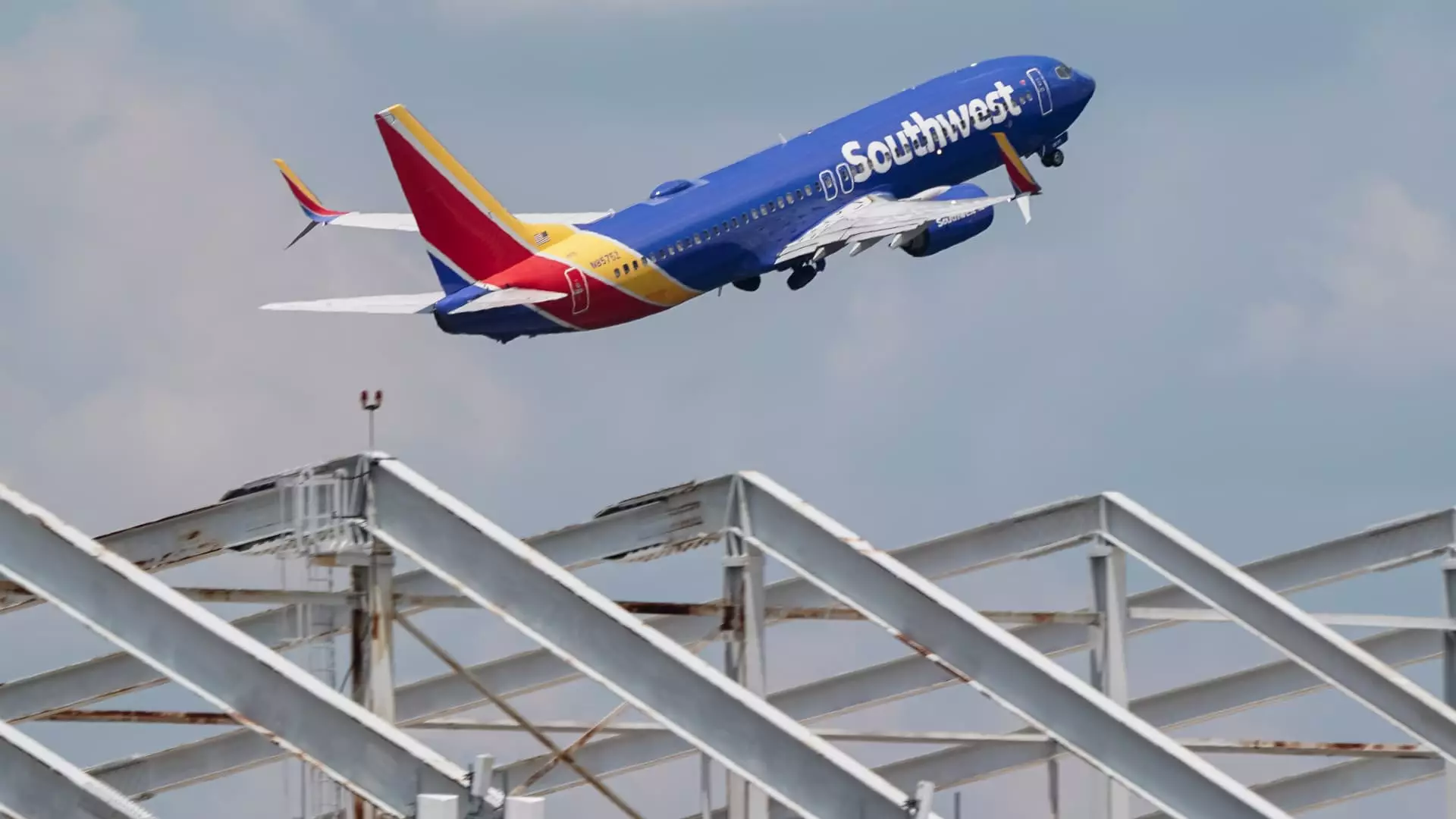Southwest Airlines, a prominent player in the commercial aviation sector, is embarking on significant changes as it looks to optimize operations and curb mounting losses. Recently, the airline announced a strategic reduction in service to and from Atlanta, which includes cuts to its workforce, specifically affecting over 300 pilots and flight attendants. This decision reflects broader market pressures and operational shifts, prompting a reevaluation of the airline’s route network.
According to a memo disclosed by CNBC, Southwest’s decision is rooted in economic necessity rather than employee performance. The airline will not close its crew base in Atlanta, signaling a strategic shift rather than a complete withdrawal from this crucial market. Instead, staff reductions will involve a decrease of approximately 200 flight attendants and as many as 140 pilots during the April 2025 bid month. Those impacted have the option to bid for positions at other locations, which creates an added layer of uncertainty for the personnel involved.
While the cuts aim to help Southwest stabilize financially, they also illustrate a precarious balancing act. The airline must maintain enough workforce to meet operational demands without incurring excessive costs, particularly as it faces investor scrutiny and increased pressure from activist entities like Elliott Investment Management.
The upcoming operational adjustments include a reduction in the number of gates allocated in Atlanta, from 18 to 11. Furthermore, Southwest is set to scale back its services from 37 cities to just 21 by March, marking a significant contraction in its regional footprint. Atlanta, recognized as the world’s busiest airport and a hub for competitor Delta Air Lines, presents an uphill challenge for Southwest as it reevaluates its competitive positioning.
The airline’s decision to scale back in Atlanta indicates a larger trend within the aviation industry, where airlines are repositioning themselves to focus on the most profitable routes. This tactic comes as Southwest embarks on a broader initiative to optimize its network, shedding less profitable operations while reallocating resources to regions showing robust customer demand.
Despite the service cuts in Atlanta, Southwest is not pulling back entirely on growth initiatives. The airline recently unveiled an expanded schedule that extends ticket sales through June 2024, a move consistent with industry patterns of maintaining customer engagement despite operational adjustments. Notably, Southwest plans to enhance its service in Nashville and introduce overnight flights from Hawaii, expanding routes to Las Vegas and Phoenix.
This dual approach — trimming back in one area while actively pursuing growth in others — highlights Southwest’s commitment to maximizing revenue opportunities and meeting evolving customer needs. By focusing on operational efficiencies alongside strategic expansions, the airline seeks to reposition itself competitively in a rapidly changing market landscape.
A prominent factor influencing Southwest’s strategies is the ongoing operational volatility, which includes transitioning from Boeing’s delayed 737 Max 7 aircraft. These delays have compounded existing challenges, as the airline manages tight aircraft supply amid shifting booking patterns. Consequently, Southwest must remain agile in responding to market conditions while ensuring that resource allocation aligns with consumer demand to restore profitability.
Corporate leadership has candidly acknowledged that difficult decisions are necessary as the airline navigates these tumultuous waters. The recent announcements regarding operational changes reflect the harsh realities of the aviation industry, emphasizing that even established market players like Southwest must continuously adapt to survive.
Southwest Airlines is poised at a critical juncture as it implements service reductions in Atlanta while simultaneously looking to expand in other markets. This strategic recalibration reveals not only the complexities of operating within one of the world’s busiest air travel markets but also the broader challenges faced by the aviation sector. As airlines navigate operational difficulties and changing consumer preferences, how Southwest executes its plans will have lasting implications for its market position and overall financial stability. The company’s ability to balance growth with cost management will ultimately determine its resilience in the highly competitive landscape of commercial aviation.


Napsat komentář